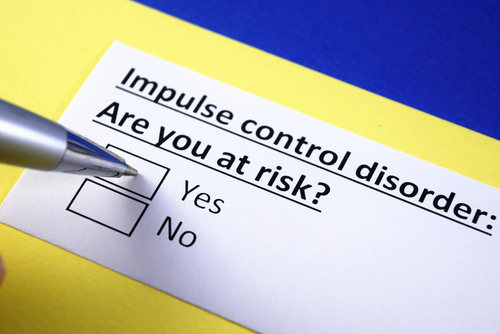Dopamine Agonists Linked to Impulse Control Disorders in Parkinson’s Patients, Study Finds
Written by |

More than half of Parkinson’s patients who have been treated with a dopamine agonist may develop impulse control disorders over time, according to recent research.
The study, “Longitudinal analysis of impulse control disorders in Parkinson disease,” was published in the journal Neurology.
Impulse control disorders are characterized by the inability to resist impulses or to control specific behaviors. These include compulsive gambling, shopping, eating, and sexual behaviors, which can lead to serious financial, legal, or social problems.
These types of disorders are common among Parkinson’s patients. The use of dopamine agonists — which act as a substitute for dopamine in the brain — has been suggested as a main risk factor; however, scientific evidence has been controversial, and this relationship had not yet been fully established.
In this observational study (NCT01564992), researchers analyzed the incidence of impulse control disorders among 411 Parkinson’s patients who had been diagnosed with the disease for five years or less, followed up annually for up to five years.
Approximately 86.6% of the patients reported taking a dopamine agonist at least once since disease onset, and 71.9% continued treatment with a dopamine agonist for an average of three years.
In the beginning of the study, 19.7% of patients were diagnosed with an impulse control disorder. Compulsive gambling affected 3.9% of the patients, compulsive shopping 4.6%, compulsive or binge eating 10.5%, and 8.5% had compulsive sexual behaviors. About 6.3% of patients had more than one compulsive disorder.
Those with impulse control disorders were found to be younger, had longer disease duration, and took dopamine agonists more frequently and at higher doses than those without these issues.
No differences in frequency and dosage of levodopa were found between the two groups.
Over the course of the study, the incidence of impulse control disorders among participants increased from the initial 19.7% to 32.8% after the five years of follow-up.
For people who had never taken dopamine agonists, 12.4% developed compulsive disorders compared with 51.5% of those who had ever used the therapy.
“Our study suggests that impulse control disorders are even more common than we thought in people who take dopamine agonists,” Jean-Christophe Corvol, MD, PhD, lead author of the study and a professor at Pitié-Salpêtrière Hospital and Pierre and Marie Curie University, said in a press release.
Higher doses of the therapies and longer treatment periods made people more likely to develop impulse control disorders.
Two specific dopamine agonists, Mirapex (pramipexole) and Requip (ropinirole), were associated with the highest risk of developing impulse control disorders: 4.67 times higher for Mirapex, and 4.86 times higher for Requip. Others therapies such as Apokyn (apomorphine), Pardocel (bromocriptine), Neupro (rotigotine), and Piribedil (piribedil) were associated with a 2.74 times increased risk.
During the study, 30 patients discontinued dopamine agonist therapy, which led to a progressive resolution of compulsive disorders. After one year, 50% of these patients no longer had the behavioral disorder they were previously diagnosed with.
Similar analysis with other antiparkinsonian drugs were performed, and failed to reveal any association with the incidence of these behavioral disorders.





